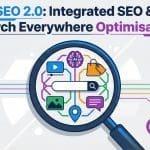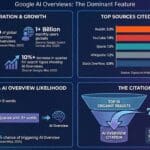When it comes to Search Engine Optimsiation (SEO) and Pay Per Click (PPC), each technique offers different benefits. The main benefit of PPC is that in a short period of time the advertiser can gain huge traffic to his or her site whereas with SEO it takes longer to get traffic and become recognised in the top positions of search engines. For this reason, PPC is probably the most popular advertising technique on the internet today.
So what is PPC?
PPC advertising involves sponsored links on advertising networks, websites and search engines such as Google, Yahoo and Bing. Typically these are usually in the form of text ads or image/banner ads. Strategically these ads are placed close to the top of search engine results. The advertiser typically sets a budget and pays the PPC provider (e.g. Google AdWords) for every visitor who clicks on his advert or banner. Advertisers will bid on keywords and phrases that are relevant to their products and services and the higher the bid, the higher the spot in the sponsored listings. This cost is usually dependant on the level of competition for that keyword and how long the campaign runs for, but the advertiser can always set a limit. Here are some of the benefits of PPC advertising:
- Instant results – No more waiting for your product or service to be found by your target audience as the results will be instant.
- Ideal for testing your market – If it is a short term advertising campaign that your business needs then PPC is ideal. By testing the user reaction particular products, services and keywords, you can get immediate data about your market.
- Return on investment (ROI) – If your business website conducts business or sales online, for example using e-commerce, then PPC should generate an immediate return on investment.
- Extremely flexible – Your chosen keywords are very easy to adjust, edit or delete as your advertising campaign evolves and you learn more about your target market.
- Total control – With PPC, you are in total control. You decide what the daily budget is, what keywords you are going to use and what the advertising text will contain.
How is SEO different?
SEO is organic, which means that the results are dependent on the quality of the website and how much work is put into optimising it. There are no direct costs to the search engines themselves and results are dependent on the website owner putting in lots of hard work, including on-page optimisation (keywords) and off-page optimisation (link building). On-page optimisation involves working on the website content, optimising images and properly defining metadata. Off-page optimisation, also known as link building plays a key role in SEO – the more high quality links that the website can accrue, the higher up the search engine rankings it will climb. Clearly, SEO is more cost effective in the long run, but it does involve lots of hard work and patience. Results are also tracked differently. PPC campaigns using tools like Google AdWords provide specific analytics around the campaign, such as total spend and how many impressions have actually translated into clicks. SEO progress can be tracked using various tools for measuring rankings, link building efforts and on-page optimisation. Google Analytics, if used correctly is a great tool for measuring both SEO and PPC.
How to use both PPC and SEO effectively?
In our experience, both PPC and SEO can have a clear role to play in search engine marketing. SEO tends to be more trusted as users generally understand that the sponsored listings aren’t organic and are the result of a paid advertisement. PPC also tends to become very expensive if relied upon over a long period of time to generate website visits and sales. Having said that, SEO does take a lot of time and patience – a luxury that many new businesses can’t afford. This is where PPC advertising can be very powerful. Our suggestion would be to simply set a budget for search engine marketing and split that budget between PPC and SEO. Initially, you will probably spend more on PPC, but as the organic rankings of your website picks up and you begin to get a return from the SEO, you can start to phase-out the PPC advertising and focus more on SEO. This will help you to reduce your long-term costs for search engine marketing.
Getting support
If you are struggling with PPC, hiring the professional services of a PPC management consultancy will reap benefits as they will focus on helping you to run your campaign effectively and get a quick return on your investment. If you are looking at both PPC and SEO, a search engine marketing consultant from a trusted and reliable web design and SEO company will be able to devise a program of PPC advertising and SEO specific to your business needs. The consultant should conduct an in-depth analysis of your website and provide an assessment for your future needs, which includes a strategy on how to drive traffic to your website. The specialist should also create a list of proven, effective and relevant keywords that will need to be skilfully incorporated into your marketing campaign.
Image credit – SEOPlanter






0 Comments